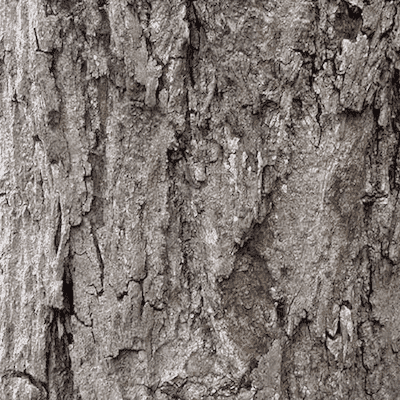Softwoods
A forest is a carbon bank, every tree a deposit.
The United States Virgin Islands (USVI) offer unique investment opportunities through low-tax and no-tax business zones. One such opportunity is a rosewood plantation, benefiting from a climate similar to the Amazon but with lower humidity. The plantation requires minimal irrigation, and the warm climate accelerates rosewood growth by 20% compared to regions like Florida.
Innovative crop circle formations enhance growth by creating a spiral layout that deflects wind forces and retains humidity, optimizing conditions for tree development. Additionally, since the trees are grown on U.S. protectorate soil, there are no restrictions on importing the harvested wood to the U.S. mainland. This provides investors with a lucrative opportunity to benefit from a projected $46 million in revenue by year 40.
Rosewood tree plantations are structured as social impact investment ventures, funded collaboratively by investor partners and the managing company. Investments are secured by property ownership, offering a clear exit strategy. Capital is allocated toward procuring seeds, propagation equipment, and ongoing maintenance to ensure plantation success.
Rosewood trees are cultivated from seeds sourced from mother trees in the Amazon rainforest. Approximately 10,000 seeds are required to produce 5,200 seedlings, assuming a 50% germination rate.
Seedlings are nurtured in an on-site nursery equipped with proprietary pyramid pots. These pots promote vertical growth, establish strong root systems, and prevent wind-related blowdowns, a common challenge in traditional nurseries.
The germination process takes approximately 20 days, after which the seedlings are nurtured into 10-foot-tall saplings over three years using advanced fertilizing and pruning techniques. Extending growth for an additional three years can produce 20-foot-tall saplings, reducing the return on investment (ROI) timeline from 40 years to 30 years.
Rosewood is one of the most valuable exotic hardwoods globally, and the plantation’s asset value increases significantly over time. For instance, with a standing timber value of $8,896 per tree, a plantation of 5,200 trees could achieve a total asset value of $46,000,000 by year 40.
The plantation spans 26 acres of a 56-acre oceanfront property. The land rises gently from the coastline to the foothills of an island mountain range. The midsection of the property, with fertile grasslands, provides an ideal location for the plantation.
The Brazilian Amazon rainforest, spanning 2 billion acres, is the native habitat of the Rosewood tree. These trees thrive in the states of Amazonas, Pará, Rondônia, and Acre. The Amazonas state, located in the northwest region of Brazil, holds the world's largest expanse of Amazon rainforest, home to the last remaining pure stands of old-growth rosewood trees.
Rosewood encompasses several species, each with unique traits and specific habitat requirements found only in specialized environments. Among them, the most prized for its valuable timber is Dalbergia nigra, commonly known as Brazilian rosewood. Native to the Atlantic Forest biome, this species thrives along Brazil's eastern coastline and extends into parts of Paraguay and Argentina. These attributes make Dalbergia nigra an ideal species for cultivation on the Atlantic side of the United States Virgin Islands.
Over the past century, illegal logging and unsustainable harvesting practices have significantly reduced rosewood populations in Brazil. Determining the precise number of virgin rosewood trees remaining in the Amazon rainforest is challenging due to undocumented illegal logging activities. However, experts estimate that fewer than 4,500 old-growth rosewood trees remain in the Amazon basin as of the summer of 2022.
Rosewood's unique characteristics make it a versatile material for a variety of applications, including:
Our patented techniques significantly enhance tree growth rates. By optimizing standard plug-and-plant forestry methods, we produce tall tree seedlings that can grow to 8 feet in just 2 years before transplantation. These seedlings, with branch-free trunks resembling palm trees, are ideal for producing clear-grained sawlogs, the most valuable wood veneer. In the USVI, on-site pruning ensures similar results.
Enhanced Root Systems for Easier Transplantation: Unlike traditional root balls, our elongated root stems are cost-effective to ship and easy to transplant using a tractor-mounted post-hole auger. This eliminates the need for wind supports and ensures the seedlings quickly adapt to their new environment. In contrast, nearly half of standard plug seedlings fail within the first year due to insufficient root development, while our tall seedlings thrive.
Once the site is prepared, a digital mapping system designs precise crop circle patterns. These maps are uploaded to a drone, which marks each planting spot. Using a tractor-mounted post-hole auger, our team drills deep, cylindrical holes tailored to the length of each root stem. The roots are inserted into the holes, backfilled with excavated soil, and secured with circular ground covers to prevent plant competition and wind displacement. This method ensures nearly 100% survival rates.
Our methods also accelerate the growth of rosewood trees. By manipulating newly germinated seeds or plug seedlings, we cultivate tall saplings that reach up to 10 feet within 3 years. These saplings feature branch-free trunks, ideal for producing high-value veneer-quality wood.
Pyramid Pots for Superior Root Systems: Our proprietary pyramid pots cultivate elongated root stems that anchor firmly into the soil, eliminating the need for wind supports post-transplantation. This innovative approach ensures better survival rates and stability.
After clearing and grading the site, spiral planting designs are created using a digital mapping system. The map is uploaded to a drone, which marks the precise planting locations. Tractor-mounted augers drill deep, cylindrical holes for each root stem. The saplings are inserted, backfilled with soil, and watered. Ground covers are added to prevent weed growth and wind displacement, promoting optimal tree growth.
Rosewood trees are a lucrative investment, offering stability against inflation and market volatility. In today’s economic climate, with rising inflation and uncertainty, growing rosewood trees provides a secure alternative to traditional investments.
Establishing a plantation in a tax-advantaged jurisdiction like the USVI further enhances returns by leveraging local incentives and sustainable practices.
The U.S. Virgin Islands (USVI) offers exceptional tax benefits for environmental and sustainable businesses, making it an ideal location for rosewood tree plantations. Key benefits include:
By establishing a rosewood plantation in the USVI, investors can benefit from these programs while contributing to a sustainable future. This unique opportunity combines profitability with environmental stewardship.
From maple to oak, hardwoods whisper of centuries past, their slow growth a testament to patience and value over time.
Partner with us in a land management project to repurpose agricultural lands into appreciating tree assets. We have partnered with growingtogive.org, a 501c3 nonprofit, to create tree planting partnerships with land donors.
We have partnered with growingtogive.org, a Washington State nonprofit to create a land and tree partnership program that repurposes agricultural land into appreciating tree assets.
The program utilizes privately owned land to plant trees that would benefit both the landowner and the environment.
If you have 100 acres or more of flat, fallow farmland and would like to plant trees, then we would like to talk to you. There are no costs to enter the program. You own the land; you own the trees we plant for free and there are no restrictions; you can sell or transfer the land with the trees anytime.
Copyright © All rights reserved Tree Plantation


